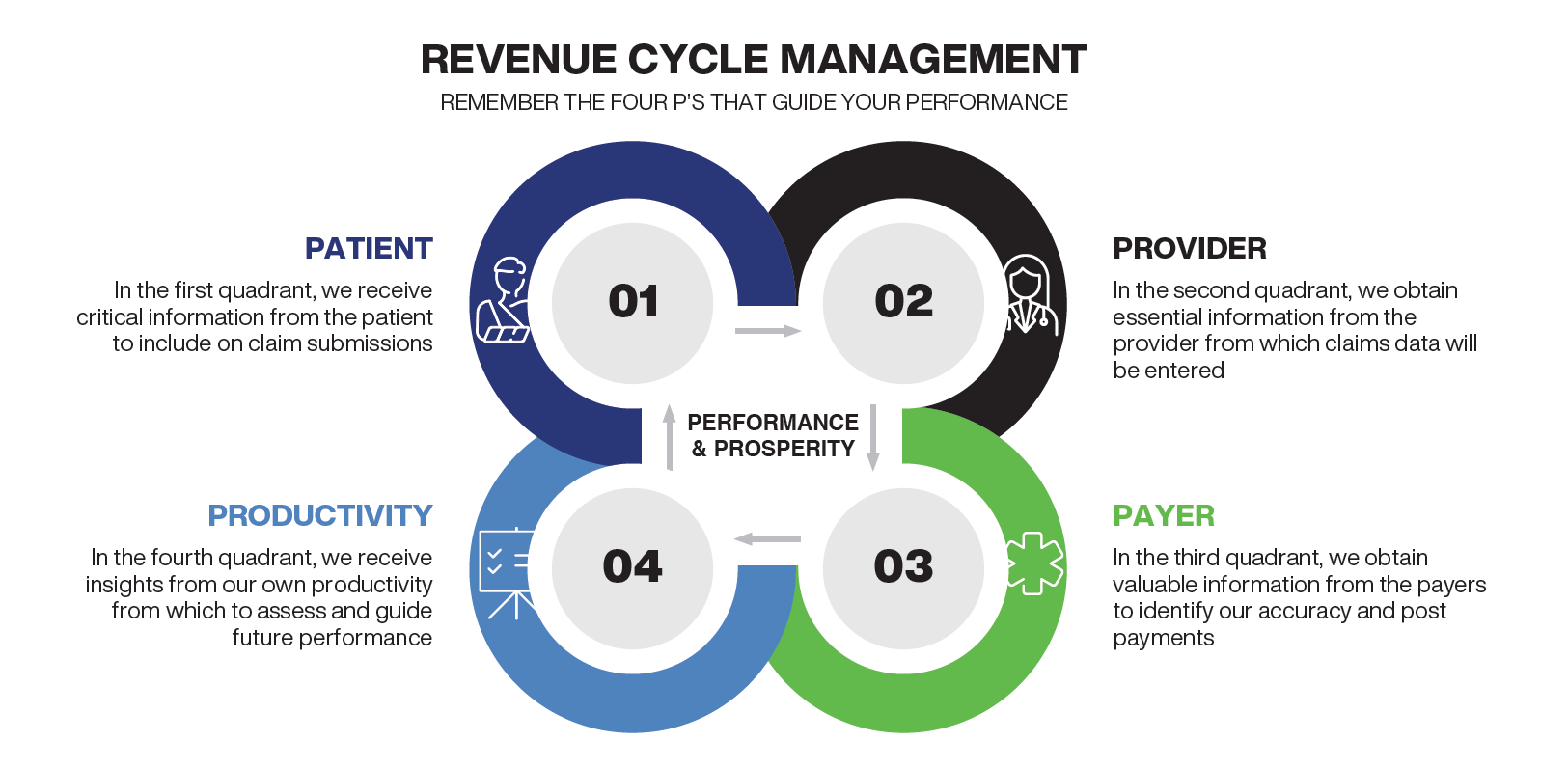Taya Gordon, MBA, FACMPE, Chief Revenue Cycle Officer at H4 Technology and a nationally recognized expert in revenue cycle management, emphasizes the importance of foundational practices in her latest article for Oncology Practice Management magazine. Gordon highlights that navigating the complexities of revenue cycle management (RCM) is crucial for oncology practices to achieve financial stability and operational efficiency.

The article outlines the essential components of RCM, detailing how each step—from patient intake to final payment—plays a pivotal role in the overall success of a practice. Gordon identifies four key phases of the revenue cycle:
- Patient Information Gathering: This initial phase focuses on accurate patient intake, eligibility verification, and collecting payments at the time of service.
- Provider Documentation and Coding: This phase translates patient interactions into claims through precise documentation and coding practices.
- Payer Interaction and Claims Processing: Here, practices manage payment posting, collections, and communication with payers to ensure timely reimbursements.
- Performance Analysis and Improvement: This final phase involves evaluating productivity through key performance indicators to identify areas for enhancement.
Gordon advocates for a structured quarterly strategy to address these phases systematically:
- Q1: Concentrate on improving patient information collection.
- Q2: Focus on enhancing documentation and coding accuracy.
- Q3: Streamline communication with payers.
- Q4: Analyze performance metrics and set goals for the upcoming year.
By implementing these strategies, oncology practices can proactively manage their revenue cycles, reducing the risk of denials and financial discrepancies. The article also underscores the significance of collaboration among all team members to foster an environment where RCM processes can thrive. For oncology practices aiming to refine their financial management strategies, Gordon’s article provides invaluable insights into establishing a robust RCM framework that adapts to ongoing industry challenges.
For more details, you can read the original post here.

